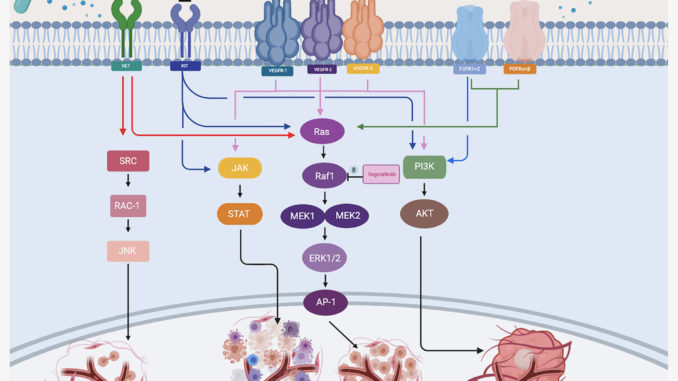
The answer is that it is a combination of surgery, chemotherapy, and radiation therapy. It is taken by mouth in combination with pacemakers, insulin pumps, and gene therapy. How does it work?
First, the cells are treated with a drug called Enberel. Enberel is injected into the rats’ bloodstream several times a day for three weeks. This drug stimulates the liver cells to stop producing cell death protein (CDP), which normally destroys HCC cells. CDP is actually a molecular marker for cancer cells. Enberel also enhances the survival of liver cells by reducing cell death and increasing their proliferation.
Next, patients are treated using an enzyme precursor called Enberel Plus. Enberel Plus is given separately from Enberel, which is also a drug that stimulates the liver cells. Enberel Plus works synergistically with Enberel to improve the overall effect of Regorafenib. After four weeks, patients are switched to regular regimens. During this time, patients have to take oral Vitamin D and stay away from alcohol and other drugs that may make liver damage worse.
What happens after four weeks? The Regorafenib-based regimen has an overall effect on patients that is about the same as when liver transplant was used, as well as when liver cirrhosis was cured. However, because Regorafenib is still given into the body through the blood stream, there are fewer risks and a shorter period of discomfort or risk.
How does Regorafenib treat liver cancer? In approximately four to six months after completing the treatment regimen, patients experience a relapse in their liver cancer. This is because the treatment encourages the liver cells to grow. When they are fully grown, the remnants of the cancerous tissue are surgically removed.
How does Regorafenib treat other liver diseases? It’s not clear whether it will work for Hepatitis C, or any other liver disease, but it is thought to be helpful in treating some forms of hepatitis. But please consult your doctor before trying Regorafenib.
What do patients need to do if they decide not want Regorafenib? They need to stop taking all anti-inflammatory drugs, which can make the liver more vulnerable to infection. In addition, they may need to cut back on certain vitamin and mineral supplements, particularly those with a synthetic vitamin component. Some researchers think that in patients already at high risk for liver failure or liver disease, taking Regorafenib might actually help them prevent this.
How does Regorafenib treat other problems besides hepatitis? It may help to slow or stop the progression of chronic hepatitis, especially when combined with anti-inflammatory drugs. Other researchers have explored the use of Regorafenib for patients with borderline high blood pressure, congestive heart failure, and liver disease associated with Wilson’s disease (a genetic disease that causes fatty liver). It’s too early to draw conclusions about the effect of Regorafenib on these patients, but it appears that at least some of these conditions could benefit from the treatment.
It is important to remember that Regorafenib is not a cure for hepatitis C. Donors and transplants are still the only treatments for this disease. The benefits of this drug may be beneficial in preventing further liver damage or disease progression, but it cannot reverse damage that has already occurred. You can contact us for purchasing it.

Leave a Reply
You must be logged in to post a comment.